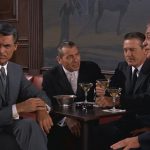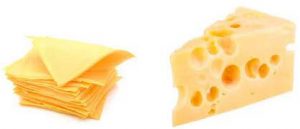New York City Diners


Excerpts from my recently published personal essay, “The Pit,” in the Outrider Press PLAY anthology.
. . . Carlo slipped about halfway across and fell off the beam. He landed face down on a pile of sand. The game stopped because we thought he was dead. As soon as he saw what happened, his brother, who was on the other team, ran to call their mother. A few of us kids climbed down and stayed with him. After what seemed like a long time to us but probably wasn’t, he sat up, spit out a mouthful of sand, and started cursing about something on the beam that he tripped on because it was too dark to see. He was a tough kid and embarrassed because he fell. He wasn’t hurt badly, just a broken arm. His mother arrived, took him by his good arm, and got into a cab to Saint Vincent’s Hospital emergency room. . .
. . . They tore out the playground equipment, trees, fences, and pavement. After removing everything else, I wondered why they left a long section of the handball wall where the courts used to be, the one closest to the Bowery. We kids didn’t play handball. The games we saw there were fast and played for money by tanned hard-looking men – Jews, Italians, and Puerto Ricans. They played with a small black rubber ball. You could hear the distinctive sound of it smacking into the wall over Bowery and Houston Street traffic noise. With Houston Street being widened, no one could ever play handball on that wall again. . .

A New York Christmas Story
‘Twas the night before the night before Christmas, and I was feeling very content. Our shopping was finished, my wife and I just had coffee and homemade cookies with some neighbors, and we were planning to go to a big Christmas Eve family dinner the next day. I expected work to be light on the twenty-fourth, and we might even get to go home early. Yes, I was pretty content when I went to bed.
My department cell phone rang a little after three AM. It was Carol, the night shift Watch Commander at the Office of Emergency Management.
Always polite, she said, “Sorry to wake you, but we’ve got a bad one.”
As the person in charge of emergency operations, I got the call whenever the Department of Buildings was needed at an incident. I coordinated our response and managed our activity at the site, either by phone or going to the location.
“There was a gas explosion in a small multi-family house in Brooklyn, and there may be survivors in the rubble. FD is requesting structural advice on how to go through the wreckage.”
I got the rest of the details and immediately called the engineer-on-duty to give him this information. Since he lived in the Bronx, I was concerned about how long it would take him to get to the Brooklyn site. After hanging up, I called Debra, another Department engineer who lived a few blocks from me on Manhattan’s Upper West Side. I gave her the essential information and said I’d pick her up in twenty minutes. She didn’t usually go into the field and never in the middle of the night. Realizing lives could be at stake, she immediately agreed.
When I arrived at her building, Debra was waiting for me in work shoes, jeans, field jacket, and hard hat. She was ready to get to work. I drove an emergency response vehicle, so with lights and sirens at that time of night, we quickly got to Brooklyn.
The Fire Department incident commander filled us in when we arrived. “It was a new three-family house, and only one family had moved in: two adults, one child. We haven’t had any signs of fatalities or survivors.” It wasn’t entirely negative news if we were still talking about survivors.
A verbal emergency declaration had been issued for a City contractor to come to the scene with heavy equipment. When the paperwork was done, it would say, “sift and remove debris.” “Sift” being a sensitive euphemism for “look for bodies.”
The equipment was on site with an expert operator waiting for instructions on how to proceed. The atmosphere was somber. We were standing beside a heap of rubble and felt we might be looking at a young family’s grave. Under the glare of floodlights, Debra and I climbed onto the pile around the almost completely collapsed building. She looked for structural clues for its safe removal. I watched her back since, although an excellent engineer, she wasn’t familiar with collapse sites. I’d been to incidents like this many times, but I was still a little rattled getting around the debris. We naturally expect walls to be vertical, so the whole world seems out of kilter when you’re walking on one as though it was a floor, and its windows are facing skyward. Debra and I might have been moving too quickly and looked unsteady to the Chief. He scolded us, “Watch where you step. I don’t want to have to carry anybody else out of this rubble.”
Debra made her assessment and gave instructions to the grappler operator. He was good at what he did, and we all had faith in him. A grappler is a powerful piece of mobile equipment designed to be used very delicately. With Debra near the grappler and watching from a different angle, she and the operator had a running conversation on how to go forward with the debris removal. He started gently removing debris from the top of the pile and then meticulously peeling away sections of walls and flooring. It was slow-going, but after a time, we saw progress. Then we noticed there was only structural debris and no personal belongings, no furniture, no food or utensils in the kitchen, and no clothing in the closets. We were all dreading the discovery of the first body but now began to have some hope that there were no occupants in the building when it exploded. At about this time, the police had finally made contact with the property owner who confirmed this. Although a family rented an apartment, they had postponed moving in until after Christmas. The building was vacant, and there would be no casualties.
The good news quickly got around, and the dreary pall lifted from the scene. The sun was starting to rise, and the mood turned festive. A Red Cross truck at the site was serving coffee and protein bars to the responders, and it began to seem like a Christmas party. I thought of the last scene of It’s a Wonderful Life. We all went home feeling as good as Jimmy Stewart and Donna Reed.

Last Night at the Plaza
I’m a native Manhattanite and sorry that I’d only been to the old Oak Bar in the Plaza Hotel a handful of times. I’m pretty sure that I first heard of it in Hitchcock’s North by Northwest. It begins with Cary Grant, mistaken for someone else, being kidnapped at the bar.I know I went there occasionally, but I worked Downtown, so it wasn’t a convenient after-work place-to-go. And when I was in the area of Fifth and Fifty-Ninth, I’d choose someplace else without really thinking of the Oar Bar. It seemed a bit stodgy to me and my contemporaries, not a place we frequented.
When I heard it was closing, I suddenly felt nostalgic about losing the Plaza. I made it a point to stop in for a drink. I went to the Oyster Bar first. The bartender and I were the only ones there. I ordered a Beck’s, and we chatted while my oysters were being shucked. Neither of us brought up the hotel’s closing.
When the oysters were ready, he served them professionally, setting out napkins and utensils but the silverware threw me. When all I really needed was an oyster fork, he’d also placed a fish knife on my napkin. I looked at it – it was pewter with the monogrammed Ps of the Plaza on the handle. I put it in my inside jacket pocket. When I finished the oysters, another customer was coming in as I paid my check. The bartender and I gave each other a friendly smile as I walked out. I left cash under my beer glass. That covered the check, the tip and what I thought a Plaza fish knife was worth. I like that fish knife and still have it so I guess I thought it was worth a lot. I never got his name, but we had a commercial interaction in addition to the beer and oysters. He knew I would understand his offer and might be interested. By looking me over and talking a bit, he surmised I was the kind of guy who’d appreciate a Plaza souvenir and give him a fair price. Everything would be auctioned off or thrown away within a few weeks, and I think we both felt that at least one fish knife now had a good home.
I left the Oyster Bar and crossed the lobby to have a last drink at the Oak Bar. I enjoyed looking at the famous nighttime murals around the room and wondered what would happen to them. After commiserating with another customer about its closing, I left feeling nostalgic for something that I never really knew but was a big part of my city. There were no souvenirs for sale and the only Cary Grant sightings were in the imaginations of the customers and staff.
.

RUDY GIULIANI wanted to clean up Times Square. Some thought this was because it needed cleaning, others because Disney said,
“If you clean it, we will come.”
” . . . During a break in one of the first hearings, a city attorney called me and firmly said, “No more buttocks.” Asked, under cross-examination, precisely what his reported observation of “exposed buttocks” referred to, one of our inspectors had come up short. He couldn’t describe what he saw as having a precise beginning and end, which made his testimony useless. Since a buttock wasn’t clearly delineated, unlike other body parts specified in the regulations, the attorney said we should steer clear of them in future reports. . . “

According to the Global Language Monitor, the English language has over a million words. The million mark was hit in June 2009. With so many words and so many choices, why do some people use the same ones over and over and incorrectly at that?
I was waiting my turn at a coffee shop and heard the customer ahead of me place his order. The exchange of words was fine up to a point. It ended with the man behind the counter saying to the customer, “You can pick up your coffee at the cashier.”
The customer’s response: “Awesome.”
No, the Grand Canyon is awesome. Notre Dame and the pyramids at Giza are awesome but not coffee. Awesome is breathtaking, astonishing, even fearsome, and as much as I love coffee, getting a container of it isn’t any of those things.
Out of those million English words, I always thought there were enough verbs, but I must have been wrong because people are creating new ones. Since we’ve been speaking Middle English, the word for ‘to transfer possession of’ has been give but lately the noun gift is being used in its place. Give, giving and gave has become gift, gifting and gifted. It seems to work but doesn’t that make a ‘gifted child’ someone’s son or daughter they no longer want and pass on to a friend at Christmas?
There’s another verb that although also around for a long time, has taken on a different and contemporary definition. It’s rocking, and is being used in place of wearing, as in ‘wearing clothing.’ But you have to be careful about which types of clothing you apply it to. It goes perfectly with Air Jordan Super Flys and skinny brim hipster hats, but no one will ever rock Birkenstocks and babushkas.
Here’s a verb that’s changed by, I’d say, about ninety-percent. Decimate is currently being used to mean ‘to destroy a large part’ but it originally meant ‘to reduce by ten percent,’ and only ten percent. Its root is the Latin decem or ten. When a Roman legion’s mutiny was put down, they were decimated. The soldiers were lined up, and every tenth one was beaten to death by nine others, a very precise and deadly way of reducing by ten-percent.
A sector that’s often guilty of not so much misusing words, but using them pretentiously, is the corporate world. Limits become parameters, detailed becomes nuanced and accountability is now transparency. There’s also a belief in that culture that the more syllables a word has, the more important the speaker must be. Functionality is three syllables better than function, and they’ll never use use when they can use utilize. An exception to that corporate multi-syllable rule is shop. Calling a corporate center or office a shop gives it something it doesn’t have. A shop implies physical creativity as might be found in an atelier or studio. Edison had a shop at Menlo Park. Spreadsheets and Gantt charts just don’t come up to that level.
There are some other words that are fine when used alone but not when combined with certain other words. One is hone. Its misuse is so common that it’s almost become accepted. Hone is defined as ‘to sharpen or make perfect,’ like when someone ‘hones their skills.’ Lately, it’s being used incorrectly in place of the verb home, as in, ‘to move toward a goal’ or ‘to guide to a target’ like a homing device on a missile or even a homing pigeon. You can hone something but you can’t ‘hone in.’ There’s only a one letter variation between ‘home in’ and’ hone in’ but what a difference that makes to anyone who knows the difference. Another common but incorrect combination is ‘most unique.’ Unique already says it all, and it can’t be topped and made more superlative. Saying ‘most unique’ is as pointless as saying ‘most best’ or ‘most favorite.’ The adjective is just not necessary.
I’ll finish with a commonly used pronoun that signifies ‘no matter what’ but has recently taken on a very powerful new meaning. The word is whatever. If you want to end a discussion by implying that the discussion is beneath you and the person you’re speaking with is inconsequential and thereby dismissed, simply say, “Whatever!” and walk away. It’ll do it every time.






I grew up wanting a Norman Rockwell Thanksgiving. I wanted friends and relatives to come and visit our house with its pumpkins on the porch and autumn leaves on the lawn and hear their car tires crunching on our gravel driveway as they arrived. I wanted them to admire the turkey and pumpkin pie my mother made for dinner. But I didn’t get that kind of Thanksgiving growing up Italian-American in an apartment in Manhattan. To start with, there was no porch or lawn.

My mother made turkey but dinner began with an elaborate antipasto, then, because it was a holiday, ravioli with all kinds of meat simmered in a Sunday-style gravy, and if you were still hungry there was turkey. She also made pumpkin pie for dessert, but it was served along with espresso, anisette, cannoli and sfogliatelle. She had about a thousand Napolitano recipes in her head, but when it came to turkey and the trimmings, she relied on Betty Crocker. This wasn’t Norman Rockwell at all, and as much as I tried to push my family in that direction, they just weren’t interested.

When I was older, I met Rebecca whose heritage was Protestant, American, and Anglo-Saxon before that. Thanksgiving was in her blood. She suggested we spend the holiday at an inn in Connecticut that specialized in a traditional Thanksgiving. It seemed like a terrific idea so we made reservations and arranged to meet her cousin William and his fiancé Barbsie there.
We arrived early in the afternoon on Thanksgiving Day. The inn was a sprawling wooden building and on the National Register of Historic Places. We unpacked and went to wait for William and Barbsie at the bar. A fireplace in the lobby had a large iron pan on its hearth filled with chestnuts. It didn’t take me long to realize I was actually witnessing “chestnuts roasting on an open fire.” This was a great start to the Thanksgiving I had always dreamed of.
William and Barbsie arrived and after introductions suggested we order their family’s “traditional” start to a Thanksgiving dinner, Martinis. It wasn’t my tradition, and I was sure the Pilgrims didn’t drink them but what the hell, when in Rome…
I wore a three-piece suit, white shirt, and tie while William was dressed in khakis, a pink polo shirt, worn blazer and Topsiders without socks. I felt overdressed, and I supposed this dressing down might have been another tradition I wasn’t familiar with.
Barbsie admired my suit but then said, “It looks like something Al Capone might have worn.”
The bartender served us a platter of crackers with American cheeses, all in varying shades of orange. After her second Martini, Barbsie said she was glad there were no Italian selections on the plate because “their cheese making standards aren’t very high.”
“Hmm,” I thought, “Barbsie seems to have an issue with my ‘Italianness’“
When we got to our table, after one look at the menu, my spirits brightened. I could see the chef understood the Rockwell Thanksgiving concept thoroughly. There were lots of things on the menu I’m sure the Pilgrims ate when they invented the holiday, and there was no pasta in sight. As tradition dictates, the center of the meal was turkey, and it would be served with very American sides like acorn squash, corn bread, and sweet potatoes topped with melted marshmallows – something my mother would never have considered.

After we ordered, Barbsie mentioned there was something in the news recently about a body being found in the trunk of a car, and it was a suspected mob hit.
She turned to me with a smirk and said, “So Robert, aren’t you Italian? You must have the inside story on this.”
Rebecca cringed, but I forced a smile and replied, “I guess those pesky Mafiosi are at it again.”
Barbsie caught the sarcasm and didn’t speak to me for a while after that. I tried to shrug it off, but I was unable to keep from being offended. My mood turned dark, and the already bland food lost whatever flavor it had.
I couldn’t stop myself and asked Barbsie, “Do you suppose they purposely don’t use the spices associated with the ethnic groups they don’t want to come here?”
She replied in a huff, “Well, everyone we know thinks the food at the inn is excellent.”
Our Thanksgiving dinner continued going downhill, and conversation became strained. Rebecca and her cousin William caught up on family news with forced cheerfulness as I silently picked at my food. It became more and more uncomfortable, and with each drink, Barbsie’s rudeness got worse. I stopped responding to her and hardly responded to William or Rebecca.
I thought about the festive chaos of my family’s Thanksgiving with kids laughing and playing and the adults all talking at once. It was loud and confused with an abundanza of great food, and I missed it. Our disagreeable dinner at the inn eventually came to an end. We said goodnight and William and Barbsie drove home since they lived nearby. Rebecca apologized to me for Barbsie’s behavior, and I apologized to her for responding as I did.
We drove back to the city the next morning, and after I had dropped off Rebecca, I went to see my parents. I was hoping my mother might have some left over ravioli.

My essay, Autumn on the Lower East Side, published in Artascent.
There are many street trees on the Lower East Side of Manhattan today, but when I was growing up there in the 1960s, the only ones we had were the Norway Maples in our church’s graveyard. I passed them every day going to and from school. They were how I gauged the seasons. I loved seeing the buds on the branches overhanging the graveyard wall in spring. They announced the school year nearing an end and summer vacation not being far away. But then, watching the leaves turn brown and fall to the sidewalk in autumn meant I had a dreary school year ahead of me. I loved spring and summer and didn’t mind winter but dreaded the coming of autumn when it got dark earlier every night.
In autumn, I’d go up to the roof of our apartment building to feed my uncle’s pigeons before we had dinner because it would be too dark afterward. I’d let them have one last flight before locking them in for the night. My uncle had a separate section of the coop, where he kept twenty white tiplers. He loved to watch them circle the roof altogether in a flurry of white. Tiplers like to fly in a tight group and often go to great heights. When dusk’s shadow covered the city, they would be far enough aloft to be still glittering in the sunlight. I was sometimes afraid that they were so high and the city below so dark, they wouldn’t find their way back to our roof, but they always did. They were white, but when they were at that height, the sunset’s last rays colored them in hues of orange and yellow.
My mother made autumn seem to come earlier than it should when she’d take me shopping for clothes for the new school year in August. I still had a few weeks of summer left, but those shopping trips reminding me of the start of school put a damper on the end of my vacation. We’d go to the Orchard Street shopping district on the Lower East Side. Like a lot of other mothers and sons, we’d make our way past the “puller in” standing in front of the clothing stores asking, “Nice suit for the boy?” My mother was loyal to Jay & Ess, a men and boys shop run by two brothers that she had developed a shopping relationship with over the years. They were nice guys, and both had those blue tattooed numbers on their forearms, so common in Jewish neighborhoods then. As a reward for my shopping patience, we’d go to Julie’s Toy Store afterward. He carried a large stock of model trains and accessories, and I’d get something to add to my set. Depending on which end of Orchard Street we were on when we finished shopping, we’d either go to Katz’s Deli on Houston Street for frankfurters and a Doctor Brown’s Cream Soda or Stolsberg’s Dairy Restaurant on Grand Street for a mushroom omelet and an egg cream.
The one thing about autumn that I did look forward to were the feasts. They were held on the streets of Little Italy and celebrated various saints – Gondolfo, Cirro, Rocco, and others. They started as autumn harvest festivals in towns and villages in Southern Italy and were carried over to America by religious societies. Local people set up stands selling traditional zeppoles or grilled sausage and peppers. There was always at least one stand that had nuts, dried figs, and various confections. Torrone is a type of candy that’s so hard it has to be cut with a heavy knife hit with a hammer. Us kids stood by to catch the chips that tasted like honey and went flying with every hammer stroke. Non-locals who worked the carnival and state fair circuit showed up at the Italian feasts with games of chance where you could win a goldfish or a parakeet. The fish never lasted long, but I once won a parakeet I named Tweety that we had for years. Each feast usually lasted about a week, ending on the saint’s feast day. There were bands and processions but what I liked most were the fireworks on the last night. The fouchi dártficio were ground displays with pinwheels and fountains spouting smoke and flames in every color imaginable. It ended late, and the kids who stayed up to watch it were sleepy in school the next day.
Long after the pigeon coop was gone, I still went up to the roof. From the parapet at the corner of the building, I could look east for almost the entire length of Houston Street to the edge of Manhattan island. To the west, I could see the sun setting over the Puck Building, a large old factory that was once the home of Puck Magazine. With my roof already in its shadow, instead of flying the white tiplers like I used to, I flew a kite. There were no open fields on the Lower East Side, so if a kid wanted to fly a kite, a roof was the only place. The kite would climb above the autumn twilight and be brightly lit by the sun’s final glimmer. It was still summer up there where the kite flew.


” . . . As I walked to my car, I passed a store selling elegant Italian shoes in the same location where my aunt and uncle once had an Italian restaurant. They called it Maria’s. There was no one in the family with that name. They just liked the sound of it. I thought of my uncle, who instead of preparing squid in the kitchen one sunny afternoon, opened the fire hydrant in front of the restaurant, set up a chair and started cleaning them there in a large pot. He was the color of an old penny, never missing an opportunity to sit in the sun and work on his tan. Distracted talking to a friend, he let the pot overflow, sending the squid floating away down the gutter. My friends and I were playing nearby, and he called us over to run down the block and get them. We made a game of it and managed to catch every squid. I’m sure anyone who witnessed this didn’t order the calamari specials on the menu that night. . .”
From the editor – “. . . and by all means brag that your story won the 1st prize for the collection.”
